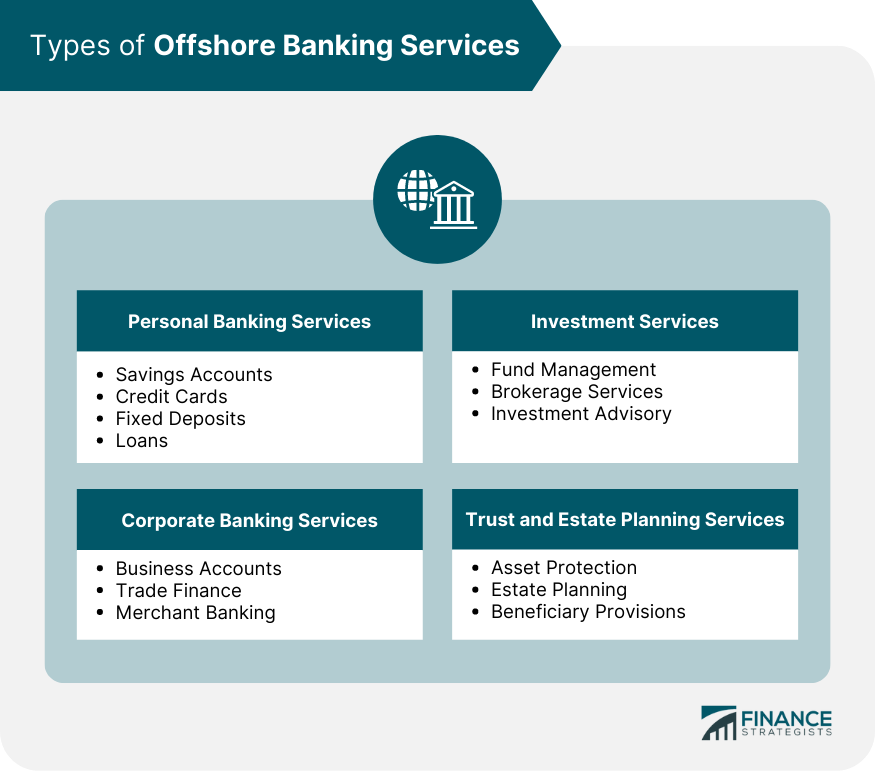Comprehending the Lawful Implications of Offshore Company Development

Lawful Framework for Offshore Companies
When establishing an overseas business, recognizing the lawful structure regulating its formation and operation is vital for compliance and danger monitoring. Offshore business operate under details laws and guidelines that vary from those of onshore entities. The lawful structure for offshore firms generally consists of provisions for firm enrollment, investor needs, director duties, and tax obligation obligations.
Business enrollment includes sending the needed paperwork to the proper regulatory authorities in the selected territory. This procedure commonly calls for in-depth info about the company's framework, investors, and desired activities. In addition, offshore business should adhere to particular shareholder demands, such as preserving a register of shareholders and keeping this details up to day.
Supervisors of overseas business have fiduciary tasks to act in the ideal passions of the firm and its investors. They are in charge of managing the business's procedures, ensuring conformity with all appropriate legislations, and managing risks properly. Understanding the tax obligation responsibilities of an offshore business is necessary to prevent any possible legal concerns. By adhering to the lawful framework governing overseas companies, organizations can operate with confidence while decreasing lawful dangers.


Tax Obligation Effects and Rules
Recognizing the tax effects and policies is extremely important when thinking about the facility and procedure of an offshore business. Offshore companies are commonly subject to favorable tax regimens, providing minimized or zero tax obligation prices on foreign-earned income.
Tax obligation laws for overseas business vary considerably throughout territories, and it is crucial to look for skilled recommendations to comprehend the particular requirements and commitments. Detailed expertise of tax laws and laws, as well as correct tax planning, are important to make sure the compliant and successful procedure of an offshore business.
Conformity Needs and Coverage
Ensuring conformity with regulatory demands and maintaining precise coverage are essential elements of taking care of an overseas company efficiently and transparently. Offshore firms must adhere to the legislations and laws of both the jurisdiction in which they are integrated and any kind of other relevant jurisdictions where they carry out organization.
In addition to regulative conformity, offshore companies are commonly based on reporting requirements to guarantee transparency and stop illegal activities such as money laundering or tax evasion. Coverage commitments might entail divulging info about the company's ownership structure, financial activities, and beneficiaries. This information might require to be shown to governing bodies, tax obligation authorities, or various other governmental companies, relying on the territory.
Maintaining complete and exact documents is critical for showing conformity and replying to any type of inquiries or audits efficiently. Offshore companies should implement durable coverage systems and inner controls to make certain that they fulfill all lawful demands and operate with integrity.
Property Defense and Privacy Rules
In the world of overseas business formation, a crucial consideration is the interaction in between asset protection approaches and personal privacy legislations. Offshore jurisdictions often provide enhanced property security mechanisms that secure possessions from potential threats such as legal actions, financial institutions, or political instability in the home country. By structuring assets within an overseas company, people can secure their wealth company website and expand their holdings throughout different lawful frameworks. Moreover, personal privacy laws in overseas jurisdictions add to preserving privacy and privacy for business owners. These regulations limit the disclosure of delicate information, article source making it challenging for exterior celebrations to accessibility details concerning the business's procedures or possession structure. This degree of privacy can be helpful for people seeking to protect their possessions from public analysis or competitors. It is critical for individuals to browse these laws fairly and transparently, making certain compliance with both offshore guidelines and the lawful requirements of their home nation. Eventually, comprehending the complex partnership between asset security approaches and personal privacy laws is critical when taking into consideration overseas firm development.
Threats and Challenges to Think about
When venturing into overseas business development, prudent factor to consider of prospective threats and difficulties is crucial for informed decision-making and tactical planning. In addition, political instability or adjustments in offshore territories can pose a risk to the connection of procedures and the defense of assets held by the offshore company.
Challenges may likewise occur concerning the complexity of offshore firm frameworks and the demand for skilled lawful and financial suggestions to navigate the complex regulatory frameworks of various jurisdictions (offshore company formation). Preserving conformity with varying worldwide regulations and regulations, in addition to possible language obstacles and cultural differences, can additionally make complex the offshore business development procedure. It is crucial to be knowledgeable about these threats and challenges before waging offshore company formation to alleviate possible challenges and ensure a smooth and lawfully sound establishment
Verdict
To conclude, overseas business development involves browsing intricate lawful structures, tax implications, compliance demands, and privacy laws. Comprehending these facets is crucial for mitigating challenges and risks related to overseas service operations. It is necessary for individuals and organizations considering overseas business formation to look for expert guidance to make certain conformity with policies and to shield their properties successfully.
The legal structure for offshore companies commonly includes provisions for business registration, shareholder demands, director duties, and tax obligations.
Directors of overseas business have fiduciary duties to act in the ideal rate of interests of the firm and look at this web-site its shareholders. By sticking to the legal framework regulating offshore business, businesses can run with self-confidence while lessening lawful dangers.
Additionally, political instability or changes in overseas territories can position a threat to the continuity of procedures and the defense of assets held by the offshore company. - offshore company formation
In final thought, offshore company development entails navigating intricate lawful structures, tax ramifications, conformity requirements, and personal privacy laws.